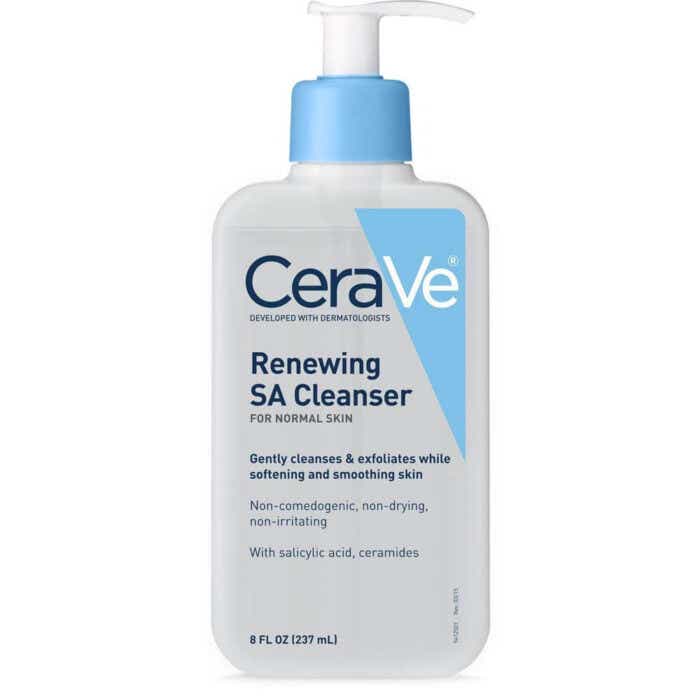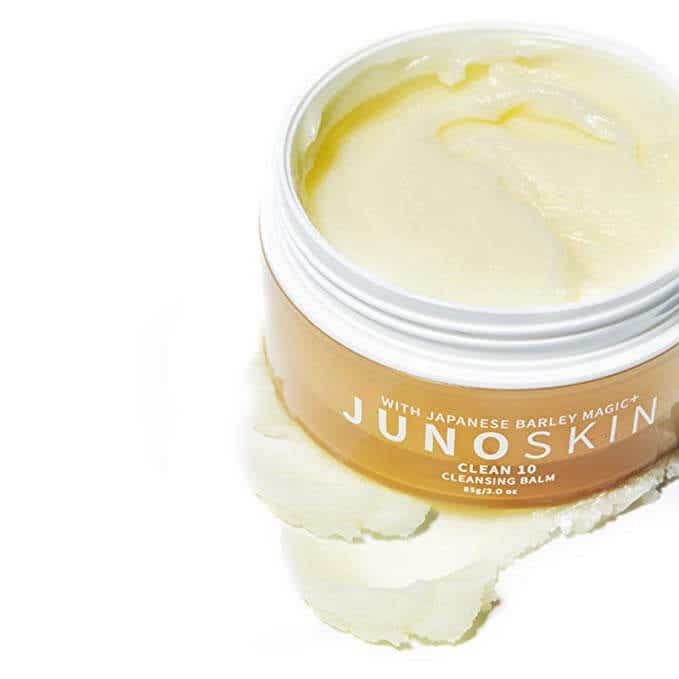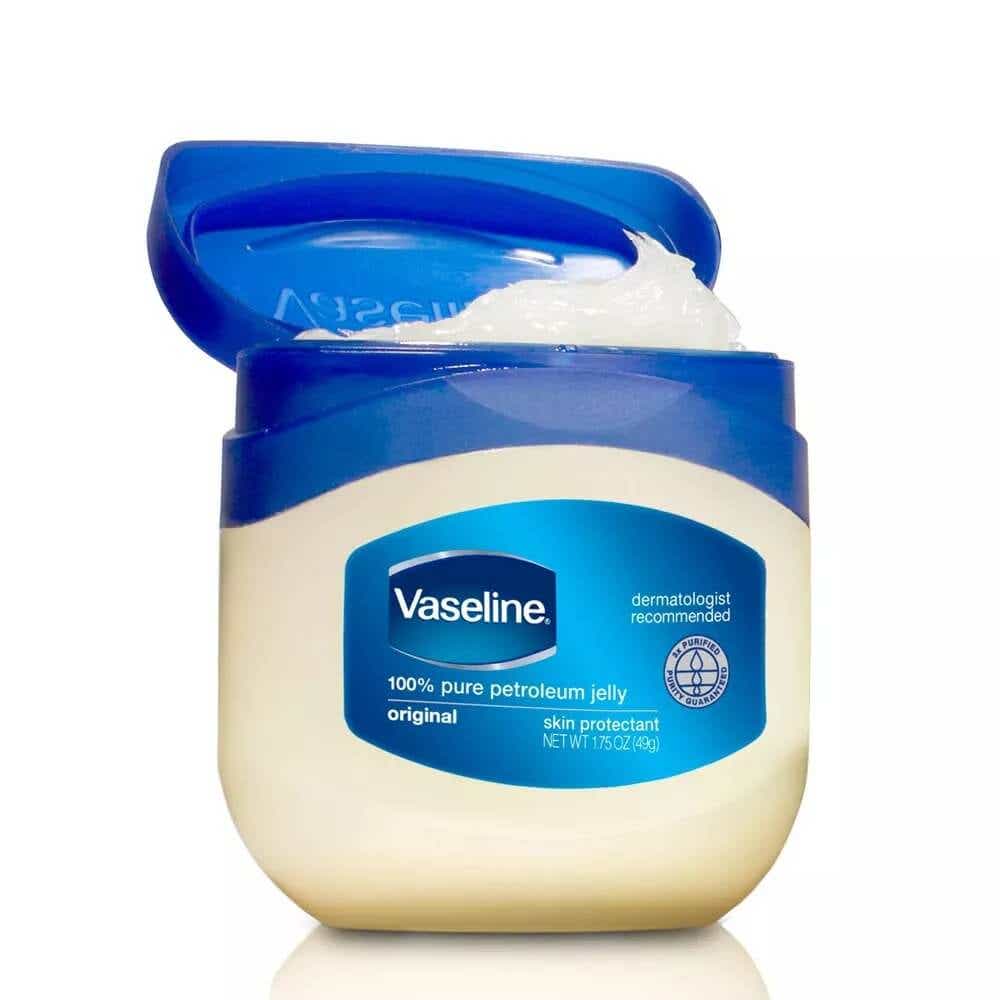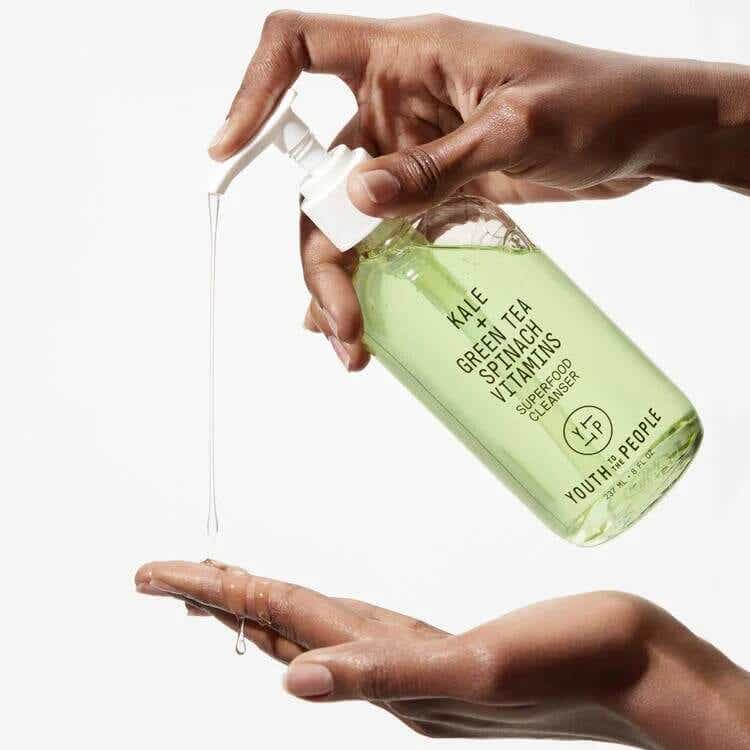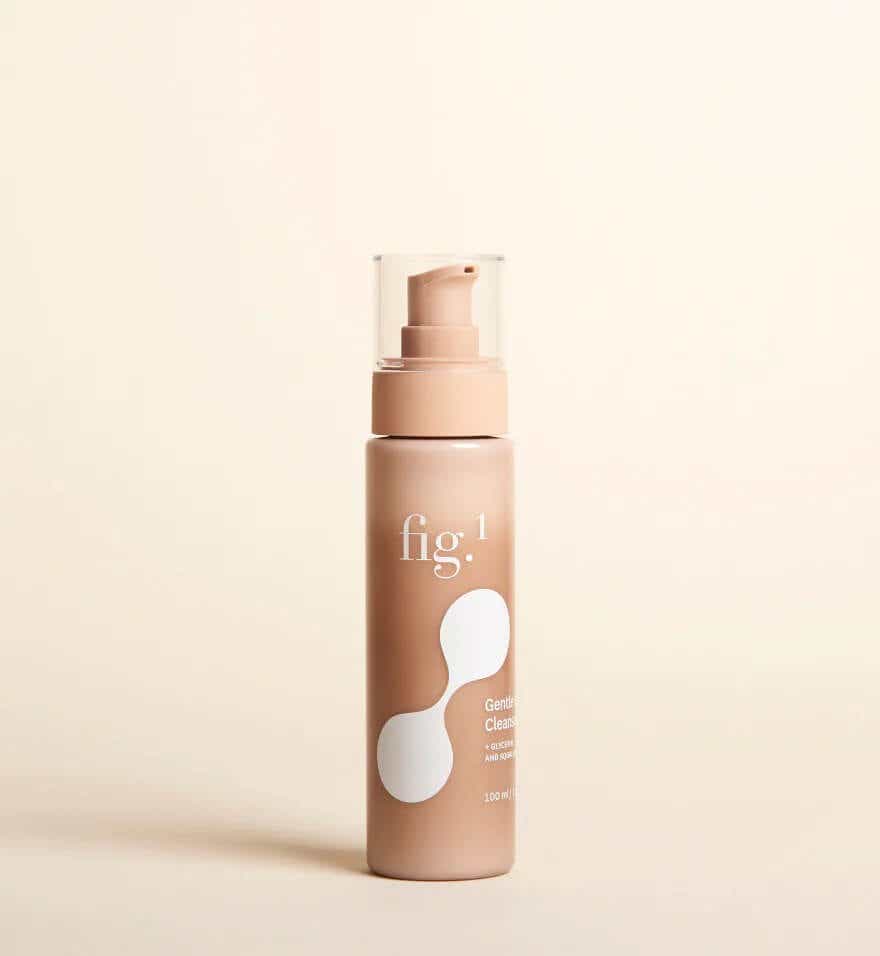There are lots of surprisingly polarizing debates in America right now, and that holds true even in the skincare world: It seems no one can agree on the number of times you should wash your face per day. Aesthetician and influencer Nicole Caroline made waves on social media a few years ago when she said that people should wash only once a day, and celebrities like Kristen Bell have said they’re part of the once-a-day movement.
But that routine isn’t what The American Academy of Dermatology recommends: They suggest washing twice a day, both morning and night, with a gentle cleanser and water. Is there really a one-size-fits-all approach? Not necessarily — at least according to Mona Gohara, MD, who told us in 2022 that she has patients who never wash their face and those who wash three times a day.
“At the end of the day, it's really about your skin type, how reactive your skin is, and what products you're using,” she said.
As simple as this hygienic practice may sound, there are some face-washing nuances that you should take into account, such as skin type, level of activity, and the type of products you’re using. To help answer some of these questions, we turned to Dr. Gohara and fellow dermatologist Loretta Ciraldo, MD, for more insight.
First, how should you wash your face?
While splashing water on your face might feel nice, it doesn’t actually clean the skin. Dr. Gohara said you need both water and a gentle cleanser to do the job — preferably one that doesn’t contain any sulfates or fragrances, to reduce the risk of breakouts or irritation.
“Water isn't a surfactant,” she explained. “In order to wash something, you have to have a surfactant, which is a compound that can break down oils and germs.”
In addition to a cleanser, time is also a key factor: Dr. Gohara said the famed 20-second hand-washing rule also applies to your face. “I recommend doing two cycles over your face in a circular motion with your hands or a gentle cotton pad,” she said.
Then again, that advice also depends on the type of cleanser you’re using. In 2022, Dr. Loretta said if you use ones with any kind of acne-fighting element like salicylic acid, you should leave it on your face for a minute or two to give it time to work.
How many times a day should you wash your face?
Both dermatologists we spoke to agree with the AAD’s recommendation of washing twice a day, no matter your skin type. “I am absolutely an advocate of washing your face morning and night,” Dr. Loretta told us.
But both did emphasize some exceptions to that general rule. For example, if you’re sweating a lot during the day, whether that’s due to the weather or an intense workout, they advise washing up to three times a day — and preferably as soon as possible after you’ve worked up a sweat. The AAD also points out that “Perspiration, especially when wearing a hat or helmet, irritates the skin.”
Is it better to wash your face at night or in the morning?
The dermatologists were split on the issue. While Dr. Gohara said she prefers to wash at night to “wash off the day’s grime and prime the face for night-time products,” Dr. Loretta said it’s better to wash your face in the morning, because pillowcases can be prime collectors of dust mites (microscopic, insect-like pests that feed on dead skin cells). Speaking of which, she highly recommended regularly washing or changing out your pillowcases.
“The most important thing is to get rid of the tiny, almost microscopic particles that are sitting on our skin when we wake up in the morning after sleeping and rubbing our faces into the pillowcase,” she noted.
Can washing your face strip it of its natural oils?
The short answer is yes — in some cases. Just as an ultra-hot shower can dry out your body, washing your face with hot water can strip off the protective sebum, which helps keep our skin barrier healthy. That’s why Dr. Loretta recommended washing your face with tepid instead of hot water, and said that’s especially important for certain skin types.
“If you’ve got sensitive skin and you use hot water, you’re going to make your skin more sensitive,” she said.
Using the wrong cleanser can have a similar effect, according to Dr. Gohara. She said soap-based cleansers typically contain high levels of pH or potential hydrogen, which can “strip the skin and harm the skin barrier.”
In addition to picking a non-soap cleanser, Dr. Loretta recommended a hydrating cleanser for dry skin, and a foaming cleanser for those who run on the oily side.
What happens if you don’t wash your face at all?
When you don’t regularly wash your face, environmental pollutants and oil can build up, leading to oily skin, blemishes, and even signs of premature aging.
“There’s a perception that the purpose of face washing is just to remove excess oils and debris that accumulate on the skin surface during the day,” said Dr. Loretta. “But equally important, if not more important, is the need to wash off surface irritants and pollutants that collect on our faces as we squish them into our pillowcases at night. These particles can penetrate into living layers where regular exposure will cause an array of unwanted visible changes, from deeper lines to age spots.”
While the skincare industry has ballooned into a multi-billion dollar industry, washing your face isn’t all about vanity — it’s also about hygiene. Dr. Gohara said people should make an effort to keep their faces clean, just like they would any other part of their body. “It should be viewed as a matter of hygiene and health, like toothbrushing, but it often is not."
Is there such a thing as washing your face too much?
There certainly is such a thing as overwashing. Dr. Gohara said washing your face more than you should is worse than not cleansing at all because you risk compromising your natural skin barrier, which is “what protects your skin and keeps water locked in and irritants out.”
What are the effects of overwashing? It can cause irritation, making your skin dry, rough, and red. “When it comes to overwashing, if your skin has that squeaky clean, tight feeling, that means you overdid it,” she said. “That’s your skin barrier’s SOS to you saying, ‘I'm damaged.’”
Still, both dermatologists debunked the common misconception that overwashing leads your skin to produce even more oil. Dr. Gohara said although some may experience this anecdotally, it hasn’t actually been proven scientifically.
Are makeup wipes really that bad?
While beloved by some for their convenience, makeup wipes aren’t exactly ideal for your skin or for the environment. Some contain a host of potentially bothersome ingredients like formaldehyde-releasing chemicals and emulsifiers. Dr. Loretta said even the act of rubbing your face with one can have an irritating effect on the skin.
But compared to not washing your face, both dermatologists agree that wipes can be a great option. “If you have the opportunity to wash your face with a regular cleanser, you should. But if you're not going to do anything, then I'd rather you use a makeup wipe than nothing at all,” said Dr. Gohara.
Wipes can also be used as part of a two-step cleansing routine, also known as double-cleansing. Dr. Gohara recommended using a makeup remover first, then following up with a gentle cleanser. But she doesn’t recommend using them around the eyes because the skin there tends to be more thin and sensitive.
What should we use to cleanse the eye area? Something you’ve most likely already got in your medicine cabinet. “For that area, you can use a little Vaseline,” Dr. Gohara said. The product provides plenty of lubrication, and its mineral oils easily break down mascara or liner, cutting down on the amount of rubbing you'll need to remove them. “Vaseline's really good because the eye area is usually the hardest area to get makeup off," she said, "and you can definitely give yourself broken capillaries and dark circles if you’re scrubbing off your eye makeup.”
Vaseline
Target
Just as Dr. Gohara recommended, a little bit of Vaseline can be used to help break down stubborn eye makeup, like waterproof mascara. A jar of petroleum jelly will normally only run you a couple of bucks, and it'll last for a long time. You can also use it to moisturize dry hands, cuticles, and lips.
Youth to the People Superfood Kale Cleanser
Youth to the People
Getting your greens doesn't just apply to your diet. Kale, spinach, and green tea combine to condition skin, and a gentle gel cleansing formula breaks down dirt and grime without leaving your skin feeling squeaky clean (aka overdoing it per Dr. Gohara).
Fig.1 Beauty Gentle Cream Cleanser
Fig.1 Beauty
Dry and sensitive skin types often do well with cream cleansers, as the formula tends to be gentler on the skin. Instead of foaming up and removing a ton of oil from already stripped skin, a cream cleanser will gently pick up dirt and grime and leave behind some moisture. This formula even has squalane in it, which penetrates the skin deeply to hydrate and condition from the inside out.








